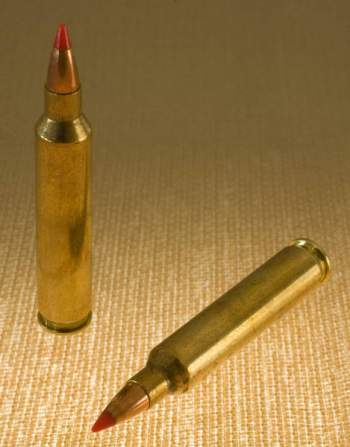
Look Into the NRA

Must Read
The National Rifle Association, or NRA as it is most commonly known, is a non-profit organization in the United States that holds as its main purpose the protection and enforcement of the Second Amendment to the Bill of Rights as written in the United States Constitution. The Second Amendment states, "A well regulated Militia, being necessary to the security of a free State, the right of the people to keep and bear Arms, shall not be infringed."
In becoming its credo, over the years the NRA has promoted a number of issues involving every aspect of firearms. Some of the main causes flown under the NRA banner include hunting, marksmanship, self-defense, and firearm safety.
The intended purpose of the NRA is essentially to educate and instruct its members and followers alike about positive aspects regarding firearms. The NRA uses various programs such as firearm safety courses, shooting sports competitions, youth programs, law enforcement services and training, and even gunsmithing schools and programs.
The hopes of the NRA are to dispel the negative attention that firearms have garnered over years and years of misuse for malicious purposes or crimes; even though firearms are weapons of death, the NRA assures the public that given the proper instruction, consideration, and respect for such a powerful tool, a firearm does not have to have the reputation of a harbinger of destruction, but simply as a tool with a purpose.
The NRA itself was originally founded by William Conant Church and George Wood Wingate in 1871 under its first name, American Rifle Association. Both founders were veterans of Union Army and founded the club under the premise to instruct Union troops in the ways of marksmanship and perfecting the use of rifles in the military by employing a scientific approach. Though the end result was to accurately render an enemy target disabled, the process and instruction itself would promote the responsible ownership and use of firearms for the main purpose of self-defense and protection.
The NRA has become a powerful organization in the United States, and without much surprise, the key element in the political discourse regarding firearms legislation and regulation. As a political organization, the NRA has opposed much of the U.S. government's legislation that restricts or confines the use of firearms, both at the state and federal levels.
The NRA stresses that gun rights are a natural civil liberty that is protected by the Constitution, and that its inclusion in the Bill of Rights shall not be subject to any scrutiny or control by legislation and political agendas. In the eyes of the organization, the only control of firearms that would be acceptable would be the NRA gun control; in other words, the only acceptable form of gun control and regulation would be the one that least institutes rules or restrictions upon the ownership, possession, and carrying of firearms. NRA gun control policy would simply mean no gun control.
Though political views of the NRA regarding gun control and firearm laws are constantly met in opposition by political factions and reform movements that support the regulation of firearms--and sometimes, to the strictest limits possible--the organization's political sway is undeniable; with over four million recognized members, and countless supporters and volunteers, the NRA's voice screaming for the recognition of the Second Amendment to the purest and truest version of the written letter is one that can not be ignored.
The fact of the matter is, the NRA is an organization centered around the protection of a civil liberty and right of the American people. Regardless of the political affiliation or stance one may have on firearm laws and gun control, the NRA's logic and arguments are hard to dismiss when they are inked in the United States' legal architecture.



















